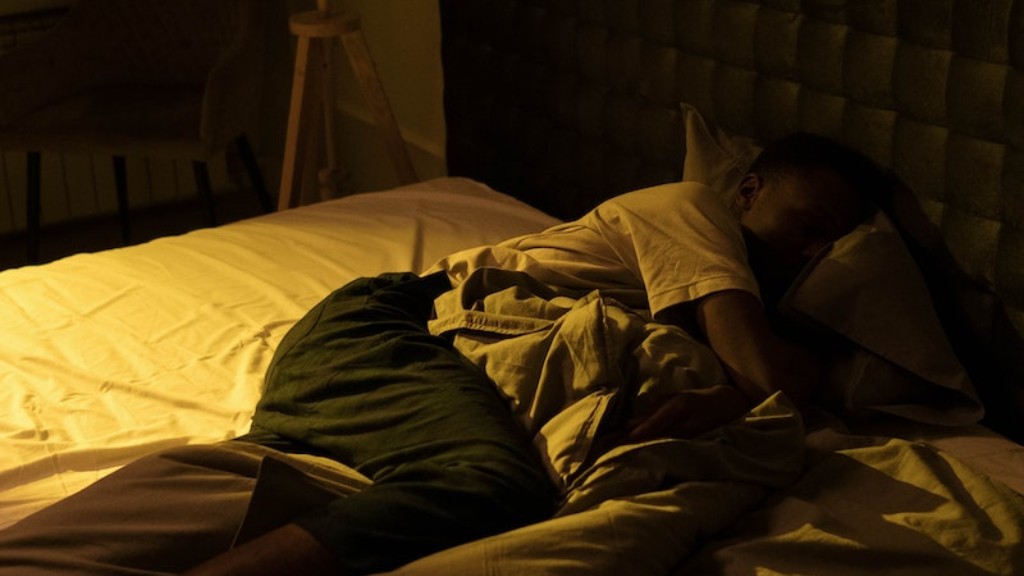The interpretation of dreams has been a topic of debate for centuries. Sigmund Freud, the father of psychoanalysis, believed that dreams were a way for the unconscious mind to process repressed thoughts and emotions. However, many modern experts believe that dreams are simply the brain’s way of processing information and sorting memories. So, why can’t we remember any dreams?
There are a couple of theories on why this may be the case. One is that dreams occur during REM sleep, which is when we are in a deep sleep. Our brains are not as active during REM sleep, so we may not be able to remember our dreams. Another theory is that we simply don’t pay attention to our dreams. We may be so busy during the day that we don’t take the time to reflect on our dreams.
Regardless of the reason, not being able to remember our dreams is not harmful. Dreams are a way for our brain to process the events of the day and sort through memories. So, even though we may not be able to remember our dreams, they are still happening.
There are a few potential reasons why you might not remember your dreams. It could be that you simply don’t dream often, or it could be that you don’t wake up during or soon after dreaming so you don’t have a chance to remember them. Another possibility is that you have a condition called REM sleepbehavior disorder, which causes you to act out your dreams while you’re asleep and makes it difficult to remember them. If you’re concerned about your dream recall, talk to your doctor.
What does it mean if you don’t remember dreams?
REM sleep is when we dream and our ability to make memories is impaired during this stage. That would help explain why we’re prone to forgetting dreams. Missing out on REM sleep could mean missing out on dreams, too.
It’s normal to forget your dreams after you wake up. Your brain is busy processing all the information from the day and doesn’t have time to focus on the dream. However, some people are able to remember their dreams better than others. Scientists believe that this is because women are more likely to remember their dreams than men.
Is not dreaming a symptom of depression
Depressed people may dream more than the average person, but they are also less likely to remember those dreams. This may be because they are less likely to get a good night’s sleep, or because they are more likely to have intrusive and negative thoughts during the day that interfere with their ability to focus on and remember their dreams.
There is no one answer to the question of why we have recurring dreams. However, some experts believe that they may be a way for our brains to process and deal with stressful situations or unresolved issues from our past. Recurring dreams can also be a sign of an underlying mental health condition, such as anxiety or post-traumatic stress disorder (PTSD). If you have recurring dreams that are causing you distress, it’s important to speak to a mental health professional who can help you understand and manage them.
Do you remember dreams less as you age?
It is generally agreed upon by researchers in the field that dream recall gradually decreases from the early stages of adulthood. Studies have shown that dream reports tend to be less intense and emotionally charged as people age. This effect is more pronounced in men than in women, and there are gender differences in the types of dreams that people have.
Sleep without dreams is the most restful sleep. According to a recent study, people who sleep without dreams sleep more soundly and feel more rested than those who dream. The study’s participants were divided into two groups: those who reported dreaming and those who did not. The participants were then asked to rate their sleep quality and how rested they felt after waking up. The results showed that those who did not dream slept more soundly and felt more rested than those who did dream. This suggests that sleep without dreams is more restful than sleep with dreams.
How does mental illness affect dreams?
These studies suggest that individuals who are anxious or depressive tend to have more negative experiences in their dreams. This may be due to the fact that these individuals are more likely to have negative experiences in their everyday lives, which may carry over into their dreams.
Recurring dreams are normal for most people, but they can be disturbing due to their content. According to studies, women are more likely to experience recurring dreams than men. If you are having recurring dreams that are causing you distress, it is important to talk to a mental health professional to help you understand and manage the dreams.
Can two people have the same dream
There is no one definitive definition of shared dreaming, as it is still a relatively new phenomenon that is being researched. However, the general idea is that two or more people can share the same dream environment. The degree to which the dream is shared can vary, from simply having common elements or events that happen in each person’s dream, to the entire dream being identical.
There are a number of theories as to how shared dreaming might work, but as of yet there is no scientific consensus. Some believe that it is a form of psychic communication, while others believe that it is simply a result of the unconscious mind being influenced by similar external stimuli.
Whatever the case may be, shared dreaming is an interesting phenomenon that is still being explored.
It is believed that most recurring dreams reveal the presence of unresolved conflict or stress in the dreamer’s life. Recurrent dreams are often accompanied by negative dream content, which is associated with lower psychological well-being. Therefore, it is important to pay attention to recurrent dreams in order to identify any unresolved issues that may be causing stress in your life.
What percent of people don’t remember dreams?
It has been observed that people with psychosomatic disorders generally have a lower percentage of REM sleep (2-3 times a week) as compared to those without any disorders (80%). In a study, it was found that out of 70 patients, 65% never remembered their dreams and 175% remembered them quite often.
REM sleep is a phase of sleep when you dream. It generally begins about an hour to 90 minutes after you fall asleep. You may not remember your dreams, but they are happening during REM sleep.
What percentage of people don’t dream
In questionnaire surveys, up to 65% of people report that they ‘never dream.’ Although most of these people report having dreamed at some point in the past, roughly 1 in every 250 people say that they can’t remember ever dreaming — not even once. It’s possible that some of these people are simply not recalling their dreams, but it’s also possible that some people truly don’t dream.
In a study investigating the prevalence of colors in dreams, Kahn, Dement, Fisher, and Barmack (1962) found that colors were reported in 827% of dreams. In another study, Herman, Roffwarg, and Tauber (1968) discovered that colored dreaming was reported after 69% of REM awakenings. These studies suggest that colors are a common feature of dreams.
Is it possible to sleep and not dream?
There is no one answer to this question. It is possible that some people do not dream because they do not have the same type of sleep that is necessary for dreaming. Additionally, some people may not dream because they do not have the mental capacity to remember their dreams. Finally, there are some people who simply do not have very interesting dreams.
Fragmented sleep can negatively impact your quality of sleep and lead to daytime fatigue. It can also be a sign of an underlying sleep disorder, such as sleep apnea or restless leg syndrome. If you’re experiencing fragmented sleep, talk to your doctor to determine the cause and find possible solutions.
Warp Up
There is no universal answer to this question, as everyone experiences dreaming differently. Some people find that they rarely remember their dreams, while others have vivid and detailed dreams that they can recall with ease. There are a number of factors that can influence how well someone remembers their dreams, including how deeply they sleep, their overall health and well-being, and how interesting or significant the dream itself is. If you find that you generally don’t remember your dreams, there’s no need to be concerned – it’s simply how your brain works. However, if you suddenly start forgetting dreams that you used to be able to remember, it could be a sign of an underlying health issue. If this happens, it’s best to speak to a doctor to rule out any potential problems.
There are many possible explanations for why someone might not be able to remember their dreams. Dreams occur during the REM stage of sleep, and if someone is not getting enough REM sleep, they may not remember their dreams. Additionally, certain medications can interfere with dream recall. And finally, some people simply don’t dream very often or have very vivid dreams. If you’re concerned about not being able to remember your dreams, speak to a doctor or sleep specialist.





